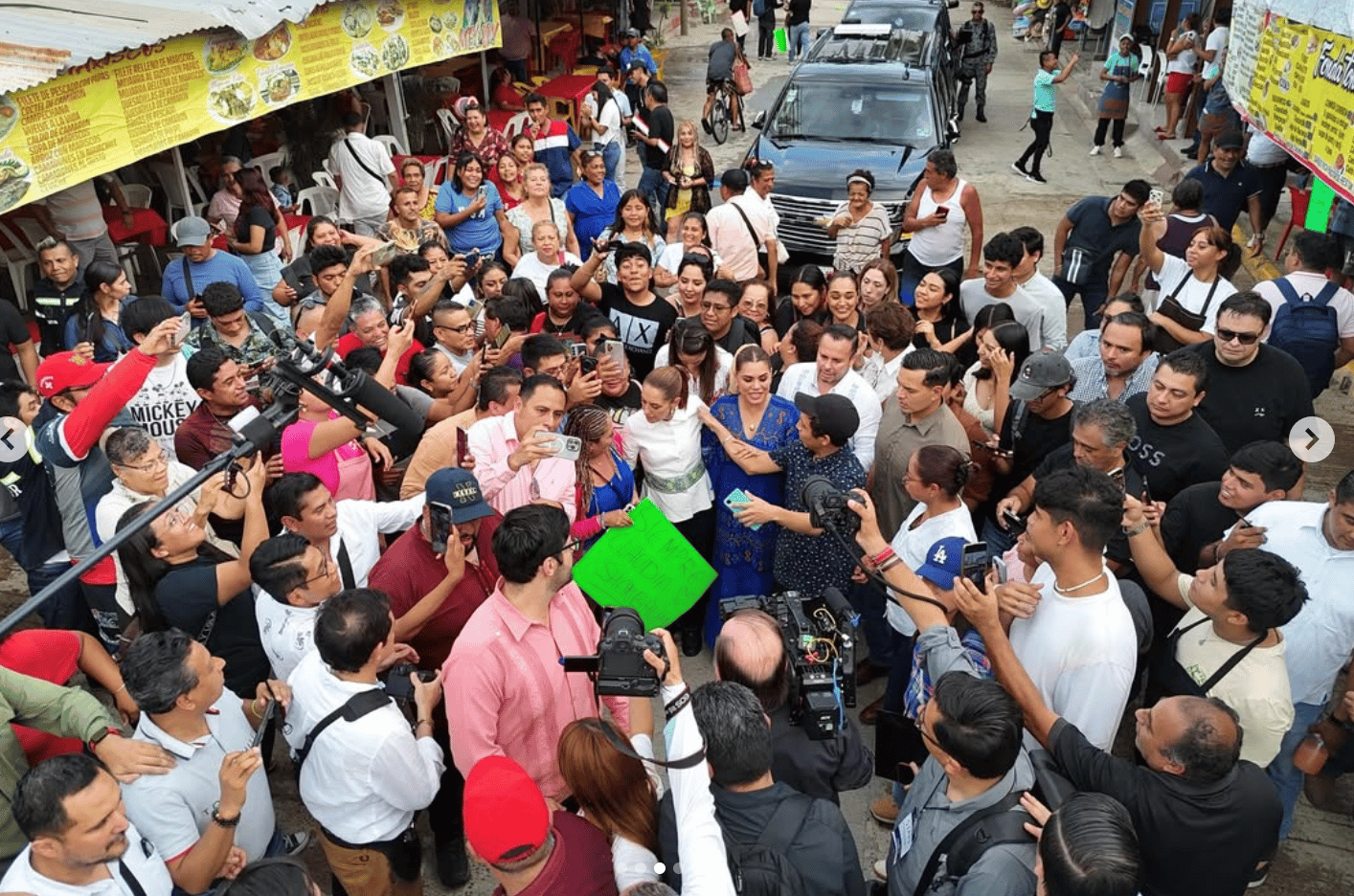- reverse pyromania
- Posts
- Imagining a Transformation
Imagining a Transformation
I'm a broken record but Mexico is doing it.
On this Labor Day, I wanted to talk about someone who’s putting in the work: generational political talent Claudia Sheinbaum, President of Mexico. That’s her in the white:

Since the start of the transformation brought by the Morena party, led by AMLO and continued by Claudia, there’s been an amazing drop in poverty:
When Amlo took office in 2018, there were nearly 52 million people living below the poverty line: by the time he left office six years later, that number had dropped by 13.4 million, a decrease of almost 26%. Extreme poverty also dropped from nearly 9 million people to just 7 million.
In a country that has long suffered from deep inequality and struggled with economic precarity, the steep drop in the number of people living in poverty is a remarkable achievement and suggests Amlo’s policies had a measurable impact on the lives of millions of everyday Mexicans.
“It’s something extraordinary, historic, the reduction [of poverty],” said Amlo’s successor and ally Claudia Sheinbaum during a news conference on Thursday. “‘For the good of all – first the poor’ is not just a slogan, but a reality in Mexico.”
When I look at Claudia’s Instagram, most of her time is spent handing out pension cards for the new social-security-like pension system in Mexico, and also opening hospitals. The woman seems to live in hospitals.

It’s not a bunch of bullshit photo ops:
The Mexican government plans to inaugurate 31 new hospitals and 12 primary care clinics by Dec. 31, 2025, as part of a national plan to expand hospital capacity and improve access to healthcare. The initiative involves facilities operated by the IMSS, ISSSTE, and IMSS Bienestar systems.
Of those, 13 hospitals and nine clinics have already been opened since October 2024, says Eduardo Clark, Deputy Minister of Health Sector Integration and Development. An additional 18 hospitals and three clinics are expected to open by the end of this year.
The facilities already in operation include the Regional General Hospital No. 2 in Ciudad Juarez, the Hospital General Tijuana Zona Este under IMSS Bienestar, and the Hospital Materno Infantil in Coatzacoalcos. New units have also launched in regions such as Oaxaca, Sonora, Veracruz, and Zacatecas, covering general care, specialized care, maternal and child health, and mental health services.
Hospitals scheduled to open before year-end include replacements for facilities damaged in the 2017 earthquake, such as the Hospital General de Zona “San Alejandro” in Puebla and the Regional Hospital in Iztapalapa, Mexico City. Additional hospitals are set to begin operations in Tuxtla Gutierrez, Ciudad del Carmen, Hermosillo, Merida, and Ecatepec, among other cities.
In parallel, another 20 hospitals are either beginning construction or in early development stages, with expected completion between 2026 and 2027. These include regional hospitals in Saltillo, Los Cabos, Guadalupe, and Santa Catarina under the IMSS, as well as specialty facilities like the Hospital de la Mujer in Tlaxcala and the Hospital General de Chetumal under the ISSSTE.
In July, homicides were down 25% since the year before.
“High Impact” crimes were down 20%. Cartels and crime are still an issue, but Morena is making progress.
The latest polling shows that she has an approval rating of 71.4%.
Morena did not promise incremental change, and they did not adopt the framing of their opponents. They promised a “fourth transformation”. It’s happening. We can look to them for ideas for the transformation that Democrats need to bring to this country and its broken, corrupt institutions.

Reply